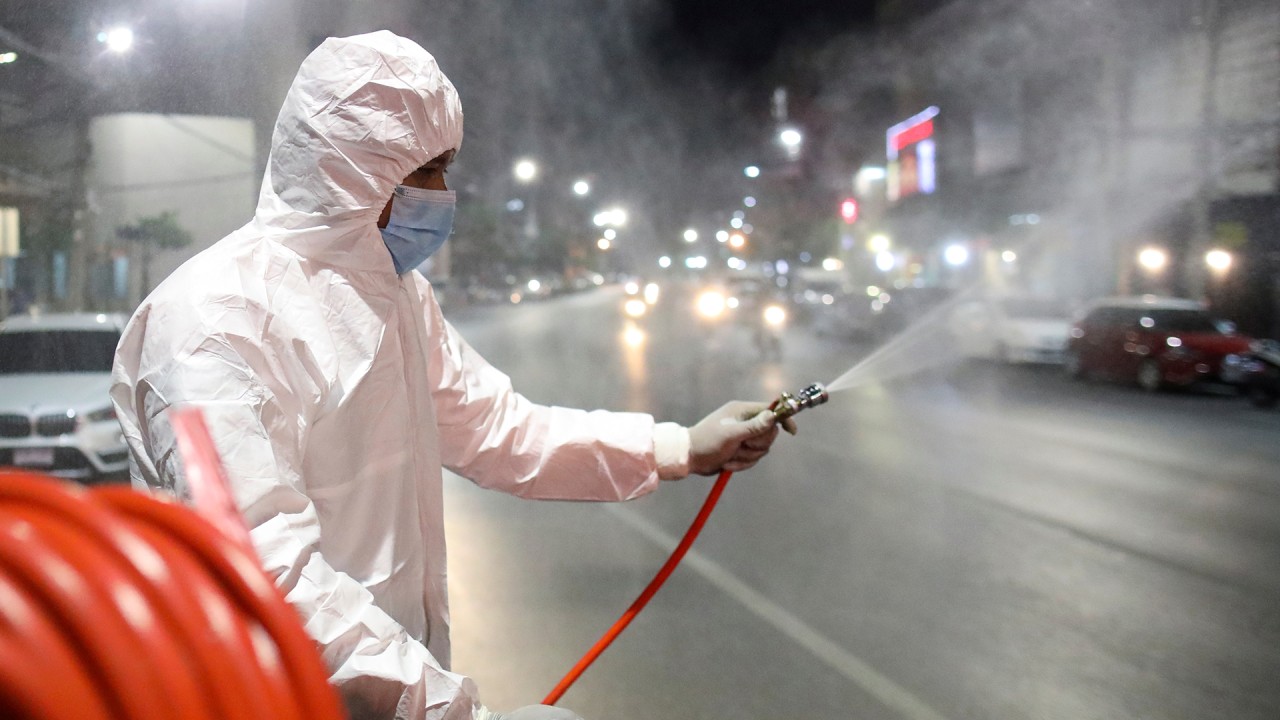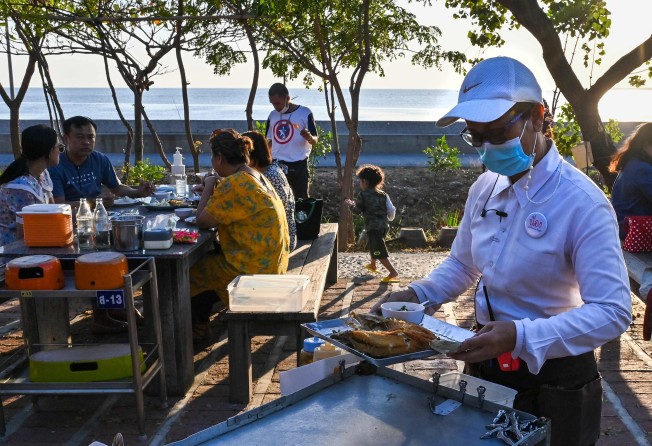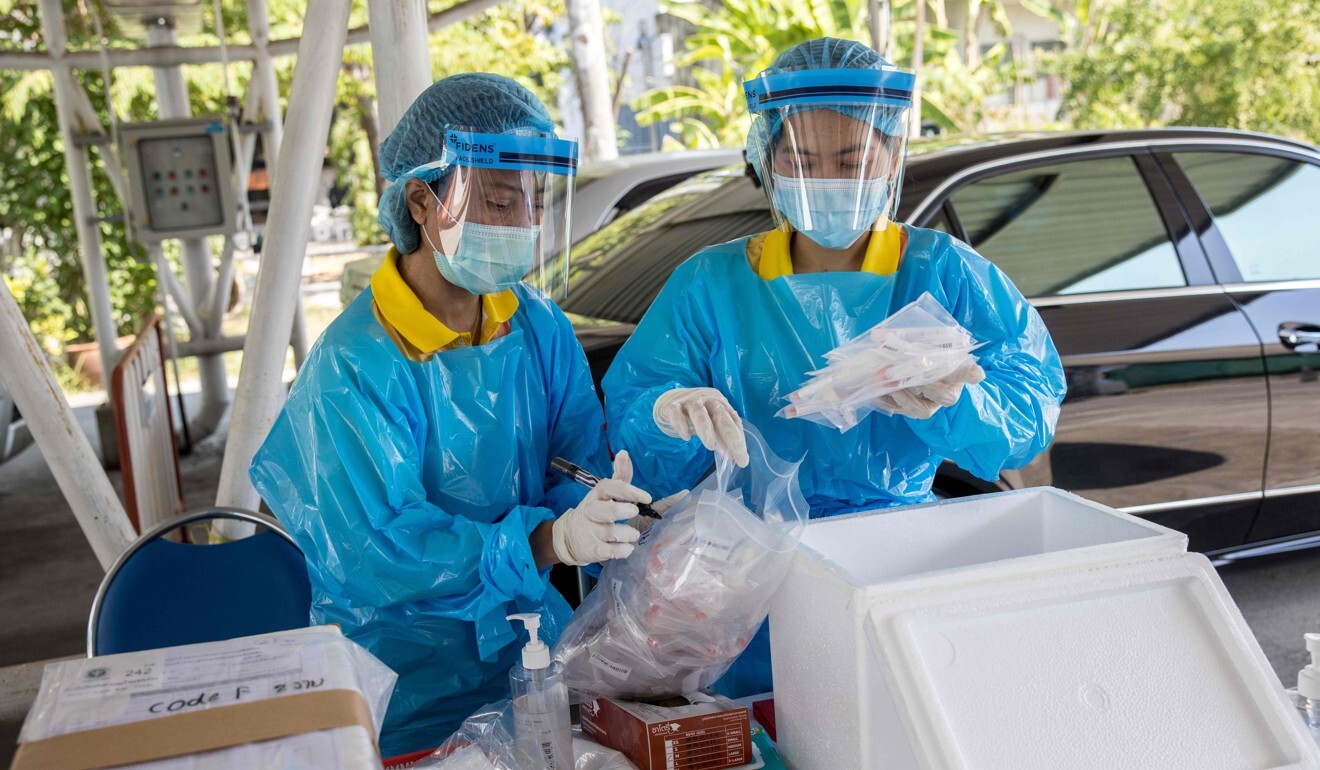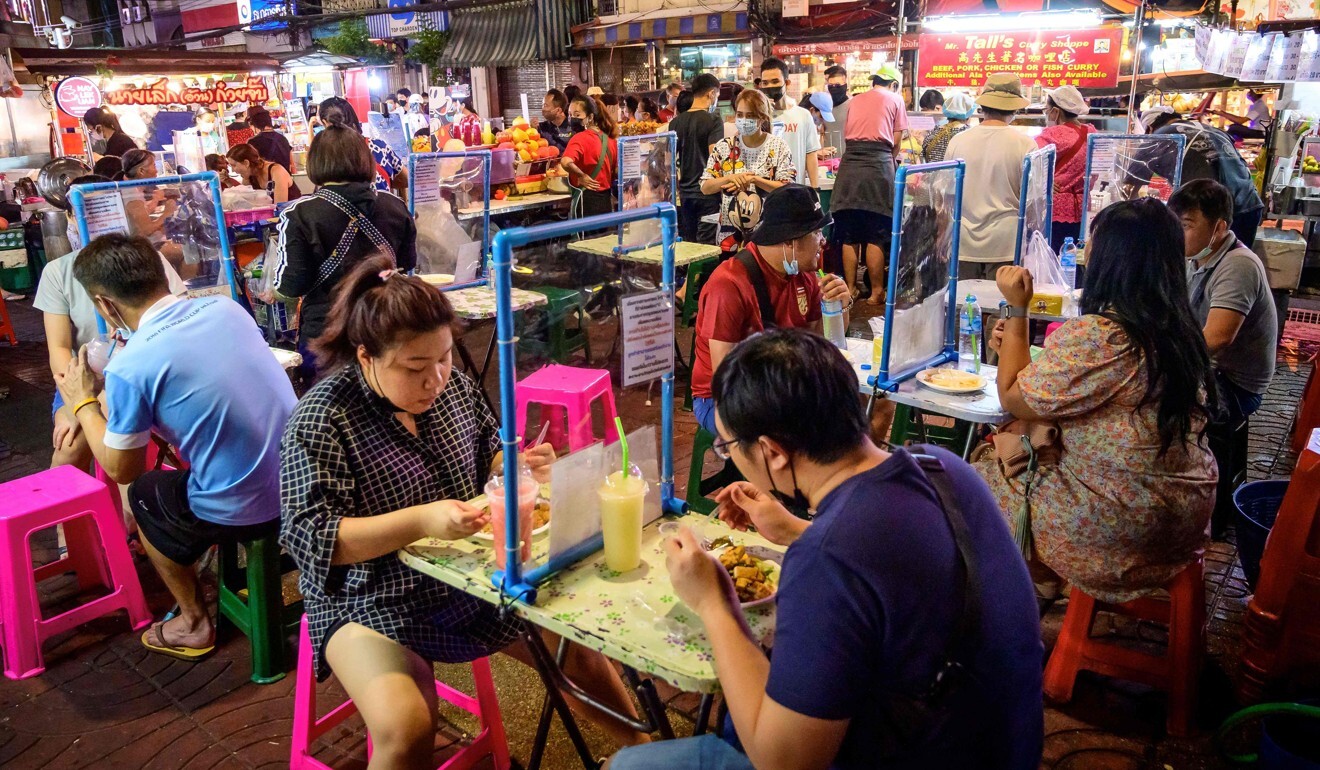
03:06
Thailand, Japan and China face new coronavirus outbreaks

Even with the roll-out of coronavirus vaccines, it will take another two years for life to return to being even “somewhat normal”, the head of Thailand’s National Vaccine Institute has warned, as a second wave of infections show no signs of stopping.
Since December, over 6,000 new cases have been detected in more than 50 of Thailand’s 77 provinces, said Dr Nakorn Premsri – surpassing the total of some 4,000 infections recorded between January and November last year.
Most of the cases in the new outbreak have been migrants working in Samut Sakhon, the centre of Thailand’s US$5.4 billion seafood industry. Cases rose to 10,547 on Monday, and the death toll stood at 67.
“The cluster this year is bigger than last time, so it will take longer to contain it,” Nakorn said. “Despite the vaccine roll-out globally, it’ll take another two years for things to go back to being somewhat normal.”
The comments by Nakorn come as Thailand prepares to launch its inoculation drive next month with 200,000 doses of the Chinese-developed Sinovac Biotech vaccine.
While Thailand has managed to keep its infection levels far below that of some countries in the region, it has not escaped the economic damage the virus has brought to economies across the world.

03:06
Thailand, Japan and China face new coronavirus outbreaks
The country has so far resisted imposing a second national lockdown after its three-month lockdown last year led to an economic contraction of 12.1 per cent in the second quarter.
Its hopes for 2021 currently rest with its vaccination programme, which will be rolled out this year in three phases to cover about 33 million people, or about half of the population.
The first phase of inoculations will see some 1 million Thais – in Samut Sakhon and Thailand’s east where infections broke out from illegal gambling dens – being vaccinated over three months. Each will get two doses, administered four weeks apart, said the health ministry.
Vaccinations are free, but migrant workers and foreigners on long-stay visas will not be eligible at this stage until more supplies arrive, Nakorn said.
An additional 1.8 million Sinovac doses will arrive in March and April.
Thai nationals eligible for the first phase of vaccination include medical workers, government officials in high-risk areas, people with health risks and residents aged 60 and above.
The second phase of inoculations will begin from May after Thailand receives 26 million doses of the Oxford-AstraZeneca vaccine. The rest of the population will receive shots in the third phase beginning in late 2021 or early 2022. Thailand said it would order 35 million more doses of the Oxford-AstraZeneca vaccine.

Thailand will be among a handful of nations to have struck deals with Sinovac, including Turkey, Chile, Singapore, Ukraine and Indonesia, with Jakarta expected to launch its vaccination programme later this week with 3 million doses.
Last week, late-state trials in Brazil of the Sinovac’s CoronaVac vaccine found its efficacy rate to be 78 per cent, compared with the vaccines developed by Moderna and BioNTech-Pfizer which were found to be on average over 90 per cent effective.
Sinovac Life Sciences, the unit in charge of CoronaVac production, last month received a US$515 million cash injection in return of a 15 per cent stake in the company from Hong Kong-listed Sino Biopharmaceutical, controlled by CP Pharmaceutical Group, an affiliation of Thailand’s largest conglomerate CP Group.
Addressing both the vaccine’s efficacy and criticisms that Thailand had been slow to secure supplies, Nakorn said the country had followed World Health Organization (WHO) guidelines that found an efficacy rate of 50 per cent acceptable.
What was crucial in combating Covid-19 was not when the vaccine campaign began but how smooth the distribution of supplies would be.
“It also depends on how infection containment measures are being observed. Some countries began the campaign earlier than others but with fewer doses, for example, as everybody wants to get their hands on the supplies at the same time,” he said.
He did not want to elaborate on where else Thailand was looking for vaccines, but stressed that supplies were scarce. Thailand had for now chosen not to place orders with manufacturers that could only promise delivery in the fourth quarter.

Thailand is also developing vaccines domestically for health care security and planned regional distribution.
Siam Bioscience, with its 200 million annual capacity, is producing the Oxford-AstraZeneca vaccine. The company, owned by the Crown Property Bureau, which manages the multibillion-dollar holdings of the monarchy and controls swathes of land in Bangkok, under a technology transfer agreement with the British firm, said its first vaccine which was produced in December would go through a trial phase in the coming months.
Twenty other local vaccine candidates are being developed in the labs and three of them will be clinically tested on humans this year, Nakorn said.